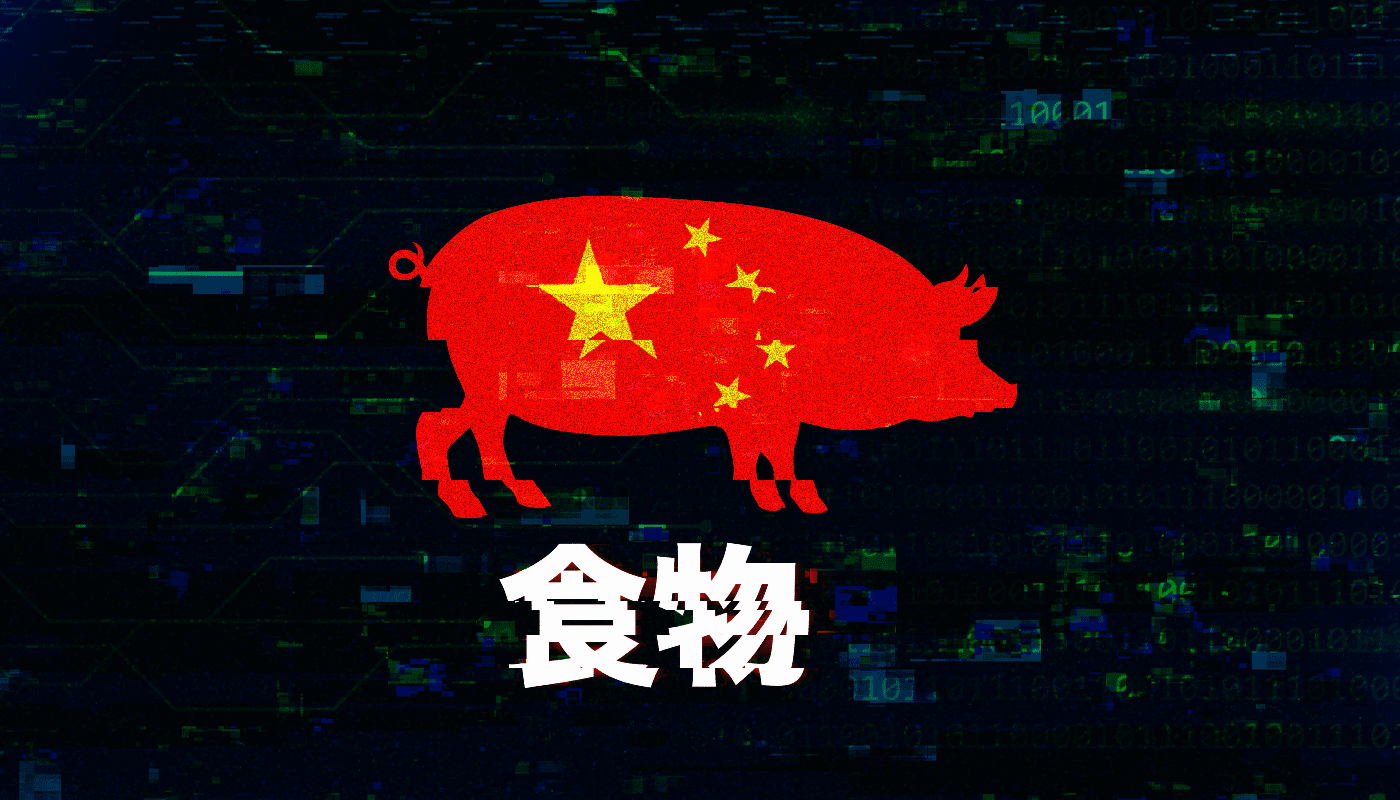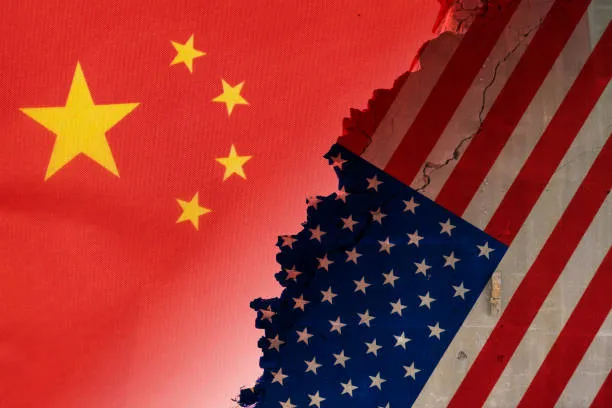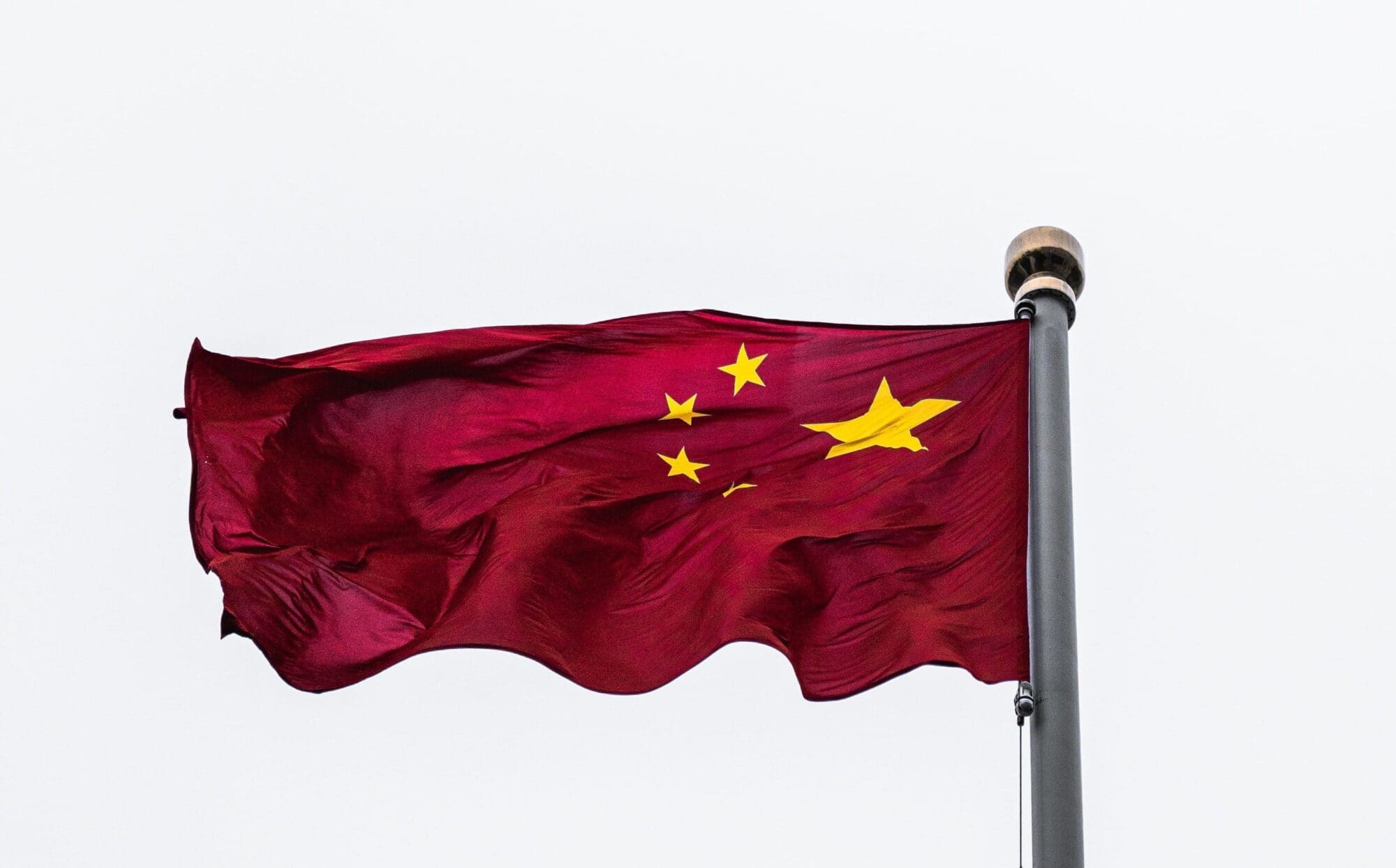Ownership of Texas land by the Chinese Communist Party (CCP), or their agents, presents multiple security risks, including one aimed at our food supply.
According to the U.S China Economic And Security Review Commission’s annual report, “China’s military-industrial ecosystem encompasses state and nonstate firms, research institutes, and investment funds, all acting in concert in service of China’s military modernization objectives.”
That sounds bad, but what immediately follows is worse.
The commission’s assessment notes that coordinated efforts by the CCP are a threat to U.S. national security, but most activity is not identified as such. In an interview with Texas Scorecard about the CCP threat and their involvement in other countries, Congressman Lance Gooden (R–TX) said an advantage China has is that “they don’t play fair.”
The bottom line is: China is moving strategically right under our noses.
In Part 1 of our investigation of CCP incursion into Texas land, we focused on large swaths of American, and Texas’ agricultural land, being owned by foreign individuals and entities. That ownership has increased over the past decade and is likely under-reported.
Increasingly, agricultural land purchased by foreign actors is used for energy development, including wind farms, but adversarial countries owning agricultural land and food processing companies pose a risk to food security statewide.
In this second article, we will explore this risk.
While disclosure is addressed at the national level, albeit voluntarily and with flaws, foreign land ownership is also handled on a state-by-state basis.
Texas has no prohibitions on foreign individuals or entities amassing agricultural land.
How, then, does the Lone Star State compare with her sisters in the Union when it comes to attempts to crack down on, limit, or bar foreign ownership of agricultural land? What’s being contemplated at the national level, and who’s driving this conversation?
We’ll explore these questions, but let’s first look at the distasteful 2013 sale of Smithfield Foods.
Smithfield Foods Backroom Deal
As was the case with wind farms near military installations explored in Part 1, the CCP is doggedly pursuing agriculture infrastructure.
Agricultural land, and the oftentimes attached food processing, serves a vital function in the insulation of any nation from foreign powers. Farmland being developed is also an issue, but Texas is not losing as much land to development when compared to other states.
Now, with an ongoing military conflict in eastern Europe, the need to be agriculturally independent is gaining deserved attention.
As is the case with energy, foreign companies and individuals have a foot in the door and remain ready to take advantage of the beachheads they’ve established in the past two decades.
Based in Smithfield, Virginia, Smithfield Foods was acquired in 2013 by the China-based company Shuanghui. Renamed WH Group, Shuanghui not only owns meat operations stateside, but it is the top meat processor in China. In March 2022, the group was dinged by regulators, and the company apologized for unsanitary conditions at their processing facilities.
WH Group’s acquisition of Smithfield made it the largest hog producer in the United States. But their reach does not end there. Filings with the SEC in 2016 lists Texas among the states with facilities owned or leased by WH Group.
The company claims that a majority of its pork exports to China are unmarketable pig parts, like ears, feet, snouts, and tails. While it’s likely true these pig bits are exported, the country also exports entire pig carcasses en masse.
PBS NewsHour characterized the purchase of Smithfield by WH Group as one that was orchestrated by the Chinese government.
“It’s just crazy. Why do we do that? Are we just, I guess, greedy, maybe?” asked Texas Agriculture Commissioner Sid Miller (R). He stated his concerns do not equate to him being an “isolationist protectionist.”
We want Toyota and BMW and those [companies] to come in, and build plants, and employ Americans. But we want to partner with them. They need to partner with us, and not just wholesale give them carte blanche access to America.
There is also a CCP connection to this deal that exposes Texas and the nation to security risks. According to the then-President of Shuanghui, when it came to the the acquisition of Smithfield:
The Chinese government has been supporting us with preferential policy, as well as investment. For instance, the Bank of China has shown great support both financially and politically.
Daniel Slane, former commissioner for the U.S.-China Economic and Security Review Commission, testified before the Senate Agriculture Committee in July 2013 on this issue. He stated the purchase of Smithfield by Shuanghui was part of China’s “far reaching program of foreign investments aimed at getting as much control of key foreign sources of supply as possible.”
According to Slane, the purchase of Smithfield represented an intellectual property boon to Shuanghui, as Smithfield was a more technologically advanced company. Adding insult to injury, American taxpayer-funded USDA grants financed several of Smithfield’s advancements.
It’s reasonable to expect this is being replicated in other acquisitions. In fact, the attorney who oversaw the purchase of Smithfield by Shuanghui said the deal was a litmus test and was set to fund many more takeovers.
In addition to controlling a significant portion of the overall volume of meat exports, China exerts a great deal of influence on meat production practices. The year Smithfield was acquired, it took steps to phase out the use of ractopamine in feed rations. (Ractopamine is a growth-promoting additive that is banned in China.)
This purchase also revealed how the CCP’s operations influence domestic lawmaking.
Until a week before the purchase was announced, Missouri and seven other states had prohibitions against foreign ownership of agricultural land. Smithfield operated in and had subsidiaries in Missouri, meaning after the Shuanghui purchase, a foreign company would have a presence in the “Show-Me State.”
In a shocking vignette of corruption, Missouri lawmaker Casey Guernsey, in whose district Smithfield operations and subsidiaries resided and comprised his tax base, proposed a change to state law. This change would allow foreign entities to own up to 1 percent of the state’s farmland.
Even before the legislation was passed, Guernsey admitted groups similar to Shuanghui were likely in violation of state law.
With a lot of big groups, anybody who has enough money can hire enough lawyers and get their way. We’ve seen a lot of these companies find ways around these laws. At least now, the rules are more clear.
Instead of cracking down on law-breaking foreign individuals and entities, he pushed legislation to excuse the behavior and pave the way for China’s purchase of Smithfield.
Two years later, legislation was passed that loosened state oversight of those foreign farmland purchases, creating a loophole that allowed purchases to exceed the 1 percent limit.
Fast forward five years to 2018, when Guernsey was featured in a Fox News article titled, “Trump needs to focus on NAFTA – not China, farmer says.”
The CCP-infested Smithfield continued its efforts to influence American policy. In 2020, while meat processing plants were shuttering across America and grocery store shelves were being hollowed out due to supply chain and production armageddon, the company lobbied the federal government to keep plants running. Simultaneously, it exported pork to China.
But pigs aren’t the only part of the American food supply in the CCP’s crosshairs.
In early July, the purchase of farmland in North Dakota raised national security alarms in Washington. In this case, an organization called the Fufeng Group secured 300 acres of land near Grand Forks to establish a corn milling plant.
As with the Blue Hills Wind Farm in South Texas, this purchase was rankling feathers in the local community for some time before it percolated up to D.C. This particular plot of land happens to be close to Grand Forks Air Force Base. Contrary to the assertion by opponents, this represents part of a stealth implementation by the CCP Belt and Road Initiative (BRI) stateside.
And there’s more.
Pecan Wars
China, over the past decade, has massively disrupted the pecan market.
The U.S. is the leading pecan grower, according to research out of New Mexico State University. Texas regularly ranks near the top producing state, intermittently swapping the top spot with Georgia or New Mexico, depending on weather conditions and output.
Dating back to 2010, and making headlines nearly every year since, is the voracious appetite China has for American-grown pecans.
The Chinese love hickory nuts, so much so that they weren’t able to meet demand. Enter the pecan. According to The World, a public radio program, pecans tasted so much like the hickory nut that the Chinese were calling it the American hickory.
Between 2012 and 2013, there was a 64 percent jump in American pecan exports to Hong Kong.
For a time, state-level public servants appeared to encourage this interest. In 2015, the Texas Department of Agriculture sponsored a Chinese delegation, who visited Pecan Grove Farms in Bastrop, Texas.
“That was part of my mission in 2015, to get the tariff lowered from 35 to 10 percent, [in] which we were successful,” Commissioner Miller told Texas Scorecard. “The nut market in China is 500 million tons, and we only produce 300. So, they buy everything we’ve got. It’s one of the few commodities that remained consistent.” Even after the recent “tariff war,” Miller said this market is “rebounding” and is “still pretty good.”
“They’re a good market for grain sorghum. We send a lot of grain sorghum over there, cotton, [and] other Texas products,” he continued. “We want their money, we just don’t want them over here snooping around.”
Escalating Concern
Ahead of and during the 2022 Republican primary election, cracking down on foreign agricultural land ownership was made a campaign issue by both incumbent Agriculture Commissioner Miller and his challenger, State Rep. James White (R–Woodville).
During a special session in August 2021, White filed House Bill 58 , which “[prohibited] any foreign individual, government, or business from purchasing or acquiring a title to agricultural land in the State of Texas.”
“When it comes to agriculture, some states have already done this,” White told Texas Scorecard. He said not only is this a “national security issue,” but it also hurts the next generation of Texans. “You’re talking about the Chinese Communist Party. They have the wealth of an entire country to bid up these property prices. Young farmers graduating out of A&M or Tarleton State, they can’t compete financially.“
Indeed, it would be difficult to convince retiring older farmers to sell to younger farmers instead of cash-rich foreign entities or individuals. Another concern in regards to national food security is that, in 2019, it was widely reported that the average age of American farmers had risen to over 57 years old.
In a press release touting HB 58, White mentioned the 2013 Smithfield purchase. While he notes that Mexican cartels are looking to purchase land along the border to strengthen trade routes, these swaths could just as easily be purchased by China to facilitate the smuggling of fentanyl across the border. While cartels are the ones doing the smuggling, the majority of the illegal fentanyl coming across the border, fueling an overdose epidemic in America, is from China.
Regarding our agriculture, White believes the CCP needs to expand into the U.S. because they are ineffective at developing agriculture resources at home. It’s a “consistent theory among geopolitical analysts,” he said. “China is really on the brink of being a failed state. It doesn’t have the capability of feeding its people.” This assertion that China is in tough economic straits is echoed by experts on the communist-run country.
White’s bill was doomed from the start because it was not on the call during that special session, meaning the governor did not say lawmakers could contemplate or pass bills on this subject matter. Still, it was a start.
Commissioner Miller shared White’s security concerns. In an email to supporters, he asked them to contact Governor Greg Abbott (R) and “ask him what he intends to do about the Chinese communist takeover of 180,000 acres of strategically sensitive Texas land because, right now, it looks like the answer is ‘not much.’”
The same sentiment could be applied to the state Legislature, as well.
Texas’ Limited Action
Starting in 2015, Sun Guangxin, a former People’s Liberation Army officer with ties to the CCP, bought nearly 140,000 acres of land in southwest Texas with plans to develop a wind farm. The project was titled “Blue Hill” and happened to be right next to the Laughlin Air Force Base.
In response, the Texas Legislature in 2021 passed The Lone Star Infrastructure Protection Act (TLSIPA), also known as Senate Bill 2116. No member of the State Senate or House voted no.
Authored by State Sen. Donna Campbell (R–New Braunfels), this was a narrowly crafted bill, championed by J. Kyle Bass, founding member of the Committee on the Present Danger: China. Bass has been sounding the alarm of the CCP’s threat for years.
We have a risk to our critical infrastructure in our state. Which is why I helped get behind and helped write Senate Bill 2116. … It’s why I put together the teams of people to come testify in the state Legislature.
TLSIPA states neither a business, state, or local governmental entity “may enter into agreements that grant to remotely access or control any” of Texas’ “critical infrastructure.” However, this law is triggered only if the business or government entity knows that the company in question is owned by, or the majority of stock or other ownership interest of the company is held or controlled by, identified hostile foreign powers. Namely, China, Iran, North Korea, or Russia.
Not unlike foreign land disclosures with the U.S. Dept. of Agriculture, the onus is on self-reporting.
Bass also has questions since the bill passed. “I’ve been trying to understand which law enforcement agency is to enforce 2116 and also review and test compliance.”
“My last conversation with the Texas Department of Public Safety on this issue was just after the compliance period ended in early June,” he continued. “They were in deep discussions about it. … They haven’t rolled out to ensure compliance as of yet.”
Commissioner Miller (R) told Texas Scorecard that he recently went to State Sen. Charles Perry (R–Lubbock) to ask him to file a bill to address the problem of foreign land ownership. Perry is chair of the Texas Senate Water, Agriculture, and Rural Affairs Committee.
“He’s not interested. He’s not for it, which I was kind of shocked. But anyway, I think we ought to put patriotism above profits,” Miller said. “In fairness to him, his reasoning was he’s a free market guy, personal property rights … if you want to sell your land to our biggest enemy, you should have the right to do that. I’m going to disagree, and I think most patriotic Texans would disagree.”
Texas Scorecard asked Sen. Perry’s office for a comment. None was received before publication.
Additionally, according to Miller, Blue Hill still remains a threat. “Now I understand they’re building a solar farm. So what’s wrong with that? Well, it gives them access to our grid. I mean, that’s dangerous.”
Comparison with Other States
Outside of TLSIPA, Texas’ agricultural land is free for purchase by hostile foreign entities, or their proxies. Thus, our land is ripe for the CCP’s taking.
“There’s already six states that ban this, and Texas needs to be one. We can stop this at the state level. But ultimately, we need it on the federal level,” Miller said. “But until the federal government acts on it, we need to act as a state. This is just one of the stupidest things we allow to happen, in my opinion.”
Since the 1980s, there has been concern about protecting American soil from foreign ownership. In 1989, it was widely reported that California State Sen. Joseph Montoya authored Senate Bill 1303. This bill would have required non-U.S. citizens to disclose real estate holdings and investments in the state every year, including holdings and investments in businesses that operate in the state.
As of 2018, a number of states forbid or limit nonresident aliens, along with foreign business or corporations, and foreign governments from buying or owning an interest in agricultural land.
Another defense other states have deployed is acreage limitations. Those employing this tactic include Ohio, Pennsylvania, South Carolina, South Dakota, and Wisconsin. In South Dakota, non-resident foreigners cannot acquire more than 160 acres of agricultural land. However, South Carolina caps ownership by foreigners or foreign corporations at 500,000 acres of land.
Washington Stirring
Movement to protect America’s domestic farmland has been ticking up at the federal level as well.
In 2021, public servants, including former Vice President Mike Pence (R) and Sen. Elizabeth Warren (D-Mass.), were calling for restrictions on adversarial Chinese ownership of American farmland. Members of the U.S. House of Representatives warned that the communist country’s presence in America’s food system presented a risk to national security.
In October 2021, Congressmen Ronny Jackson (R-TX) and Filemon Vela (D-TX) introduced legislation to “combat foreign interference in America’s agriculture supply chain” with a focus on agriculture holdings.
The FARM Act, as it is called, would require the U.S. Department of Agriculture and Government Accountability Office to investigate, and report to Congress, the national security implications of foreign investment into the American agriculture sector.
It would also reform the Committee on Foreign Investment in the United States (CFIUS) by designating the agriculture industry and overarching supply chains as critical infrastructure, requiring the committee to monitor foreign investment, and adding the Secretary of Agriculture as a member of the committee.
“Our adversaries are working overtime to undermine American interests, and the FARM Act will be an important step to secure America’s food supply by identifying and responding to inappropriate interference,” Jackson stated.
Then there is the Securing America’s Land from Foreign Interference Act, introduced by Congressman Chip Roy (R–TX). He tweeted in July that the CCP should be banned from owning land in America. This bill would direct the American president to take actions to prohibit the purchase of public or private real estate in the United States by members of the CCP.
Time to Rein in China
Speaking about the easy access the CCP-controlled China, an adversarial actor, has had to U.S. commerce, Congressman Gooden says it’s out of control.
I’m not against all things Chinese. I realize that there is a reasonable need that can be fulfilled, at times, with doing business with the Chinese. But to just give them the access that we have given them to our daily lives, to our borders, to our military, it’s something that I think needs more oversight and I think it needs some reining in.
Again, this appears to be a bi-partisan issue. When interviewed in 2014, Sen. Debbie Stabenow (D-MI), chair of the Agriculture Committee, expressed that food is not just a commodity, but is also a resource the federal government should value as highly as oil.
Regulating this space can not rely simply on individual and entity screening or distinct transactions, but must incorporate an understanding of the CCP’s “military-civil fusion strategy.”
In other words, paraphrasing the latest findings from the U.S. China Economic and Security Review Commission, it’s not the overtly threatening Chinese companies that we’re at risk of missing, but a diverse set of actors operating in China’s military-industrial ecosystem.
For his part, Commissioner Miller has advice for Texans. “Reach out to legislators, just like I’m doing,” he said. “This is not a hard deal to do this. Like I said, [in] six states, there’s model legislation. Copy and paste. We’re good to go.”






